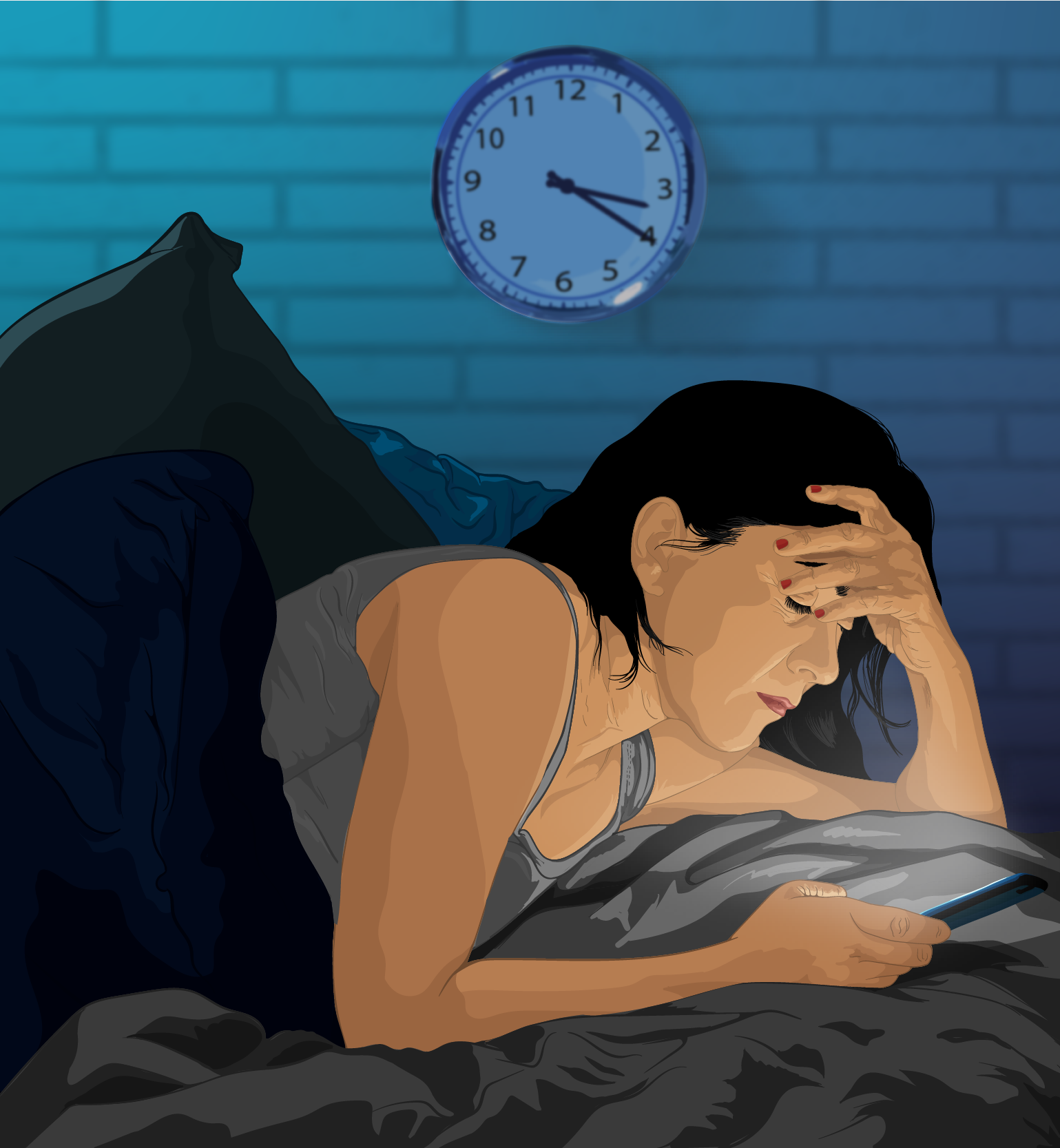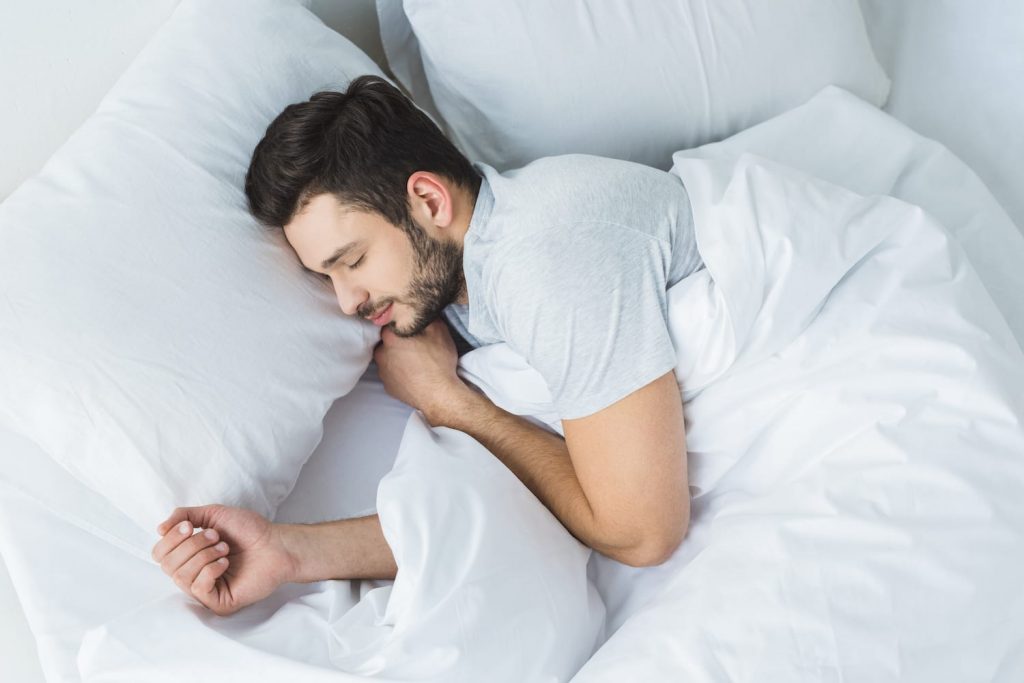Revenge Bedtime Procrastination: Why Your Work Might Be Stealing Your Sleep.
By: Nandini Gupta
Feature Articles, Health & Welfare, Psychology, Social & Youth development,

What is bedtime procrastination?
You get home from work or university. You’re drained from staring at computer screens all day long and attending an endless list of meetings or lectures. But now there’s no one to control your time. It’s 11 p.m. and you know you should probably sleep. But, you don’t. Instead, you pull out your laptop (once again), but this time for Netflix. You get comfortable in your bed as you binge-watch your favourite show. And before you know it, it’s 1 a.m. And you have been working the next day.
There’s a new term coined for sacrificing sleep for leisure time, which is due to a daily schedule lacking in free time. It’s called revenge bedtime procrastination.
For individuals with very busy schedules that take up the bulk of their day, revenge bedtime procrastination is the way to find a few hours of entertainment, even though it results in a decreased amount of sleep.
Bedtime procrastination behaviours reflect procrastination in other situations, which includes avoiding doing homework or household chores. Procrastinating on sleep is done in favour of more immediate gratification such as watching television, spending time with friends, or playing video games.
Sleep procrastination can take various forms. Bedtime procrastination is the act of delaying getting into bed. While-in-bed procrastination is when someone is already in bed, but delays the act of sleeping. The latter is often associated with rising rates of electronic device use in bed.
It doesn’t matter which form of sleep procrastination people opt for. It’s going to reduce nightly sleep, nonetheless.

Why do people procrastinate on sleep?
So what’s the psychology behind revenge bedtime procrastination?
Emma Rao spent about three years on China’s notorious “996 schedules.” Chinese workers are made to work from 9 a.m. to 9 p.m. for six days of the week. And when Rao moved from Nanjing to Shanghai, the financial hub, to work for a multinational pharmaceutical company, the job quickly took control over her life.
“I was almost depressed,” recalls Rao. “I was deprived of all my personal life.”
Due to her hectic schedule, Rao had barely any time to eat, shower, and go to bed. The window to do all that was cut shorter because she would have to work overtime many times. So she decided to stay up to surf the internet, read the news, and watch online videos until well after midnight.
The concept of revenge bedtime procrastination or ‘bàofùxìng áoyè’ in Chinese spread rapidly on Twitter after a post made by Daphne K Lee, a journalist. She described the phenomenon as when “people who don’t have much control over their daytime life refuse to sleep early in order to regain some sense of freedom during late-night hours.”
But the consequences of revenge bedtime procrastination can be harsh.
Experts have long warned that inadequate sleep is an unheeded global public health epidemic. The 2019 Phillips Global Sleep Survey shows that 62 percent of adults worldwide feel that they don’t get enough sleep each night, averaging 6.8 hours on a weeknight compared to the recommended amount of eight hours. While many reasons were provided for their lack of sleep, 37 percent reported that their hectic work or school schedule was the prime reason.
Gu Bing, a 33-year-old creative director at a digital agency in Shanghai, usually works late nights. For her, going to bed before 2:00 a.m. is considered an early night.
“Even though I am tired the next day, I don’t want to sleep early,” she says. “I really need that time. I want to be healthy but [her employers] stole my time. I want to steal back my time.”

What are the effects of bedtime procrastination?
The result?
Without enough hours of sleep, the mind and body can’t properly recharge, which has several negative effects on health.
Insufficient sleep degrades thinking memory and decision-making. It leads to less productive days due to daytime sleepiness. A lack of sleep has also been linked to mental health disorders including depression and anxiety.
Many buy into the comfort that they can cover up to sleep during the weekend. But the reality is far from it. Studies show that cramming in extra shut-eye on the weekends isn’t the most effective way to make up for the sleep lost during the weekdays.
According to a 2019 study published in Current Biology, individuals fail to offset the effects of poor sleep during the week, such as snacking, weight gain, and disrupted circadian rhythms. Studies also show that if people try to cover up sleep on the weekend, but lack good-quality sleep, then they tend to overeat and gain weight.
What are the solutions?
So how can you stop sabotaging your sleep schedule?
Dr. Rajkumar Dasgupta, an assistant professor of clinical medicine at the University of Southern California Keck School of Medicine in Los Angeles, suggests people keep their bedrooms “quiet, dark, and cool.” Moreover, engaging in activities such as meditation can help people sleep better.
Turning off electronics and not bringing them to bed is another method that works.
During the day, people must strengthen their boundaries and schedule time for themselves. Scheduling breaks for oneself will lead to a reduction in burnout and will help boost productivity levels.
Sticking to a schedule of bedtime and wake-up time is helpful and so is avoiding alcohol and caffeine in the late afternoon and evening.
There is a way out. You might not be in complete control of your daytime schedule, but you can stop yourself from ruining your nights.

Works Cited:
Liang, Lu-Hai. “The Psychology behind ‘Revenge Bedtime Procrastination’.” BBC Worklife, BBC, 25 Nov. 2020.
Marples, Megan. “’Revenge Bedtime PROCRASTINATION’ Could Be Robbing You of Precious Sleep.” CNN, Cable News Network, 15 Feb. 2021.
Suni, Eric. “Revenge Bedtime Procrastination: Definition & Psychology.” Sleep Foundation, Sleep Foundation, 23 Feb. 2021.
Similar Posts –
STOICISM PHILOSOPHY FOR YOUTHS – HOW TO NAVIGATE YOUR LIFE IN A WORLD OF UNCERTAINTY. Click here to read the full post.
NIETZSCHE’S PHILOSOPHY FOR YOUTHS – 5 WAYS TO IMPROVE YOUR LIFE. Click here to read the full post.
Tags: Anxiety, bedtime procrastination, busy working hours, depression, effects on mental health, memory, Mental Health, revenge bedtime procrastination, schedule, sleep disorders, sleep procrastination,










[…] Revenge Bedtime Procrastination: Why Your Work Might Be Stealing Your Sleep. […]